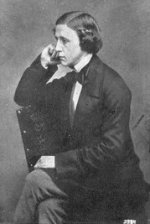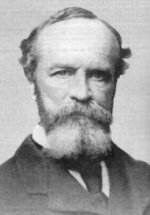Over My Shoulder #6: Oliver Sacks’s Seeing Voices
You know the rules. Here’s the quote. This is from Oliver Sacks’s Seeing Voices: A Journey into the World of the Deaf (1989). I broke the rules a bit here: rather than a single passage of a few paragraphs, I have two, because the latter one reinforces one of the important points of the former, and also because it’s damn near impossible to pick out any one thing that is the most interesting from the chapter. So here goes:
The situation of the prelingually deaf, prior to 1750, was indeed a calamity: unable to acquire speech, hence
dumbormute; unable to enjoy free communication with even their parents and families; confined to a few rudimentary signs and gestures; cut off, except in large cities, even from the community of their own kind; deprived of literacy and education, all knowledge of the world; forced to do the most menial work; living alone, often close to destitution; treated by the law and society as little better than imbeciles–the lot of the deaf was manifestly dreadful.But what was manifest was as nothing to the destitution inside–the destitution of knowledge and thought that prelingual deafness could bring, in the absence of any communication or remedial measures. The deplorable state of the deaf aroused both the curiosity and the compassion of the philosophes. Thus the Abbé Sicard asked:
Why is the uneducated deaf person isolated in nature and unable to communicate with other men? Why is he reduced to this state of imbecility? Does his biological constitution differ from ours? Does he not have everything he needs for having sensations, acquiring ideas, and combining them to do everything that we do? Does he not get sensory impressions from objects as we do? Are these not, as with us, the occasion of the mind’s sensations and its acquired ideas? Why then does the deaf person remain stupid while we become intelligent?
To ask this question–never really clearly asked before–is to grasp its answer, to see that the answer lies in the use of symbols. It is, Sicard continues, because the deaf person has
no symbols for fixing and combining ideas … that there is a total communication-gap between him and other people.But what was all-important, and had been a source of fundamental confusion since Aristotle’s pronouncements on the matter, was the enduring misconception that symbols had to be speech. Perhaps indeed this passionte misperception, or prejudice, went back to biblical days: the subhuman status of mutes was part of the Mosaic code, and it was reinforced by the biblical exaltation of voice and ear as the one and true way in which man and God could speak (In the beginning was the Word). And yet, overborne by Mosaic and Aristotelian thunderings, some profound voices intimated that this need not be so. Thus Socrates’ remark in the Cratylus of Plato, which so impressed the youthful Abbé de l’Epée:If we had neither voice nor tongue, and yet wished to manifest things to one another, should we not, like those which are at present mute, endeavour to signify our meaning by the hands, head, and other parts of the body?
Or the deep, yet obvious, insights of the philosopher-physician Cardan in the sixteenth century:
It is possible to place a deaf-mute in a position to hear by reading, and to speak by writing … for as different sounds are conventionally used to signify different things, so also may the various figures of objects and words …. Written characters and ideas may be connected without the intervention of actual sounds.
In the sixteenth century the notion that the understanding of ideas did not depend upon the hearing of words was revolutionary.
But it is not (usually) the ideas of philosophers that change reality; nor, conversely, is it the practice of ordinary people. What changes history, what kindles revolutions, is the meeting of the two. A lofty mind–that of the Abbé de l’Epée–had to meet a humble usage–the indigenous sign language of the poor deaf who roamed Paris–in order to make possible a momentous transformation. If we ask why this meeting had not occurred before, it has something to do with the vocation of Abbé, who could not bear to think of the souls of the deaf-mute living and dying unshriven, deprived of the Catechism, the Scriptures, the Word of God; and it is partly owing to his humility–that he listened to the deaf–and partly to a philosophical and linguistic idea then very much in the air–that of universal language, like the speceium of which Leibniz dreamed. Thus, de l’Epée approached sign language not with contempt but with awe.
The universal language that your scholars have sought for in vain and of which they have despaired, is here; it is right before your eyes, it is the mimicry of the impoverished deaf. Because you do not know it,you hold it in contempt, yet it alone will provide you with the key to all languages.
That this was a misapprehension–for sign language is not a universal language in this grand sense, and Leibniz’s noble dream was probably a chimera–did not matter, was even an advantage. For what mattered was that the Abbé paid minute attention to his pupils, acquired their language (which had scarcely ever been done by the hearing before). And then, by associating signs with pictures and written words, he taught them to read; and with this, in one swoop, he opened to them the world’s learning and culture. De l’Epée’s system of
methodicalsigns–a combination of their own Sign with signed French grammar–enabled deaf students to write down what was said to them through a signing interpreter, a method so successful that, for the first time, it enabled ordinary deaf pupils to read and write French, and thus acquire an education. His school, founded in 1755, was the first to achieve public support. He trained a multitude of teachers for the deaf, who, by the time of his death in 1789, had established twenty-one schools for the deaf in France and Europe. The future of de l’Epée’s own school seemed uncertain during the turmoil of the revolution, but by 1791 it had become the National Institution for Deaf-Mutes in Paris, headed by the brilliant grammarian Sicard. De l’Epée’s own book, as revolutionary as Copernicus’ in its own way, was first published in 1776.De l’Epée’s book, a classic, is available in many languages. But what have not been available, have been virtually unknown, are the equally important (and, in some ways, even more fascinating) original writings of the deaf–the first deaf-mutes ever able to write. Harlan Lane and Franklin Philip have done a great service in making these so readily available to us in The Deaf Experience. Especially moving and important are the 1779 Observations of Pierre Desloges–the first book to be published by a deaf person–now available in English for the first time. Desloges himself, deafened at an early age, and virtually without speech, provides us first with a frightening description of the world, or unworld, of the languageless.
At the beginning of my infirmity, and for as long as I was living apart from other deaf people … I was unaware of sign language. I used only scattered, isolated, and unconnected signs. I did not know the art of combining them to form distinct pictures with which one can represent various ideas, transmit them to one’s peers, and converse in logical discourse.
Thus Desloges, though obviously a highly gifted man, could scarcely entertain
ideas,or engage inlogical discourse,until he had acquired sign language (which, as is usual with the deaf, he learned from someone deaf, in his case from an illiterate deaf-mute).–Oliver Sacks (1989), Seeing Voices: A Journey into the World of the Deaf, pp. 13–18.
And:
When Laurent Clerc (a pupil of Massieu, himself a pupil of Sicard) came to the United States in 1816, he had an immediate and extraordinary impact, for American teachers up to this point had never been exposed to, never even imagined, a deaf-mute of impressive intelligence and education, had never imagined the possibilities dormant in the deaf. With Thomas Gallaudet, Clerc set up the American Asylum for the Deaf, in Hartford, in 1817. As Paris–teachers, philosophes, and public-at-large–was moved, amazed,
convertedby de l’Epée in the 1770s, so America was to be converted fifty years later.The atmosphere at the Hartford Asylum, and at other schools soon to be set up, was marked by the sort of enthusiasm and excitement only seen at the start of grand intellectual and humanitarian adventures. The prompt and spectacular success of the Hartford Asylum soon led to the opening of other schools wherever there was sufficient density of population, and thus of deaf students. Virtually all the teachers of the deaf (nearly all of whom were fluent signers and many of whom were deaf) went to Hartford. The French sign system imported by Clerc rapidly amalgamated with the indigenous sign languages here–the deaf generate sign languages wherever there are communities of deaf people; it is for them the easiest and most natural form of communication–to form a uniquely expressive and powerful hybrid, American Sign Language (ASL). A special indigenous strength–presented convincingly by Nora Ellen Groce in her book, Everyone Here Spoke Sign Language–was the contribution of Martha’s Vineyard deaf to the development of ASL. A substantial minority of the population there suffered from a hereditary deafness, and most of the island had adopted an easy and powerful sign language. Virtually all the deaf of the Vineyard were sent to the Hartford Asylum in its formative years, where they contributed to the developing national language the unique strength of their own.
One has, indeed, a strong sense of pollination, of people coming to and fro, bringing regional languages, with all their idiosyncracies and strengths, to Hartford, and taking back an increasingly polished and generalized language. The rise of deaf literacy and deaf education was as spectacular in the United States as it had been in France, and soon spread to other parts of the world.
Lane estimates that by 1869 there were 550 teachers of the deaf worldwide and that 41 percent of the teachers of the deaf in the United States were themselves deaf. In 1864 Congress passed a law authorizing the Columbia Institution for the Deaf and the Blind in Washington to become a national deaf-mute college, the first institution of higher learning specifically for the deaf. Its first principal was Edward Gallaudet–the son of Thomas Gallaudet, who had brought Clerc to the United States in 1816. Gallaudet College, as it was later rechristened (it is now Gallaudet University), is still the only liberal arts college for deaf students in the world–though there are now several programs and institutes for the deaf associated with technical colleges. (The most famous of these is at the Rochester Institute of Technology, where there are more than 1,500 deaf students forming the National Technical Institute for the Deaf.)
The great impetus of deaf education and liberation, which had swept France between 1770 and 1820, thus continued its triumphant course in the United States until 1870 (Clerc, immensely active to the end and personally charismatic, died in 1869). And then–and this is the turning point in the entire story–the tide turned, turned against the use of Sign by and for the deaf, so that within twenty years the work of a century was undone.
Indeed, what was happening with the deaf and sign was part of a general (and if one wishes,
political) movement of the time: a trend to Victorian oppressiveness and conformism, intolerance of minorities, and minority usages, of every kind–religious, linguistic, ethnic. Thus it was at this time that thelittle nationsandlittle languagesof the world (for example, Wales and Welsh) found themselves under pressure to assimilate and conform.–Oliver Sacks (1989), Seeing Voices: A Journey into the World of the Deaf, pp. 21–24.



 Lewis Carroll,
Lewis Carroll, 